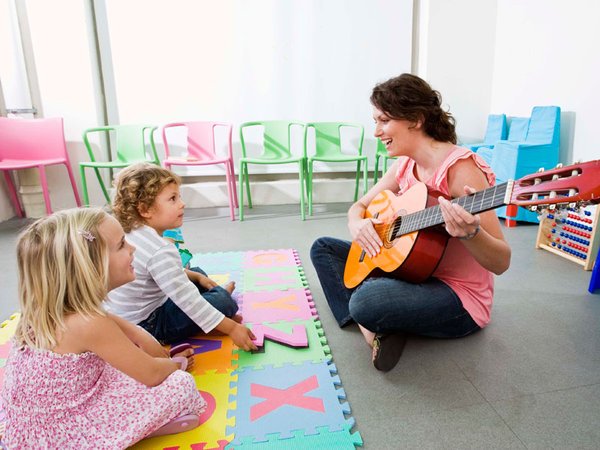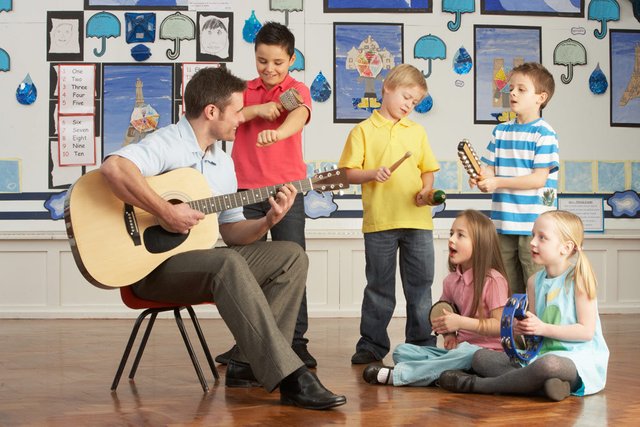How to enhance learning through music
Learning has always been a hard and difficult process, both for the teacher and the student, but in the past we did not have the amount of materials and ideas that we have today. Sing, play an instrument, listen to musical stories or have fun with games and enjoy music. All these are activities of positive influence on the development of children, music is able to positively affect brain activity and from this cognitive patterns, in any of its dimensions, helps develop language skills, memory and attention.
Music is an attractive resource that can favor learning because of the importance it has today in our lives, and therefore it is convenient to work from all its dimensions, since not only should be limited to music study itself, in its corresponding time, but it is also convenient to favor an approach and enjoyment to the musical process, which can be globalized in the other learnings of the different areas that take place in the classroom.

source
The heartbeat starts and the lifelong bond with the rhythm begins. We are music and sound by nature; Sound, at the same time, is movement and everything that happens in existence is also movement; thus we understand that it is not a superior art, but something inherent to the human being.
First are the lullabies. Important, because it has been proven that, at the brain level, a kind of magic is generated every time a small child is sung or hummed. When rocking, the cerebellum calms the anxiety generating quietness. Thus, music complements the control of impulses and emotions, calms the restless and energizes the very calm children; In short, it is an excellent means of communication.
In the old days, it was very common to hear if a person was good or bad for music depending on the skills he showed when executing it. However, at present, we value the interests for music and the potential that each person brings is favored, even if it is only about listening or corporal expression.
It is essential that educators permanently use music as a resource, keeping in mind the evolutionary stages in which students find themselves and always considering that this element can facilitate changes and transitions so typical of the school stage. The psychopedagogues lists and summarizes the following benefits of music in the classroom:
Development of the brain: musical stimuli facilitate neuronal connections, in addition to improving memory by remembering sounds, rhythms and melodies. Also the acquisition of new learnings, since through singing we can teach body parts, multiplication tables and even other languages.
Encourages the development of language: motivating to repeat verses and later to understand what the author wants to communicate through his letter.
It improves the corporal expression: through the movement that certain rhythms cause, the children are achieving the balance and the necessary coordination.
Facilitation of creativity: listening to a wide variety of themes and compositions, in the future, it is encouraged to invent songs, sounds and body movements.
Better concentration: many times, music isolates other stimuli, also providing pleasant and welcoming environments, arranging the learner for learning.
Improvement in the socio-affective aspect and self-knowledge: when expressing preferences, expressing agitation or relaxation; It enriches the interpersonal relationships, since this art allows to group people with similar tastes.
In the basic education, the branches of artistic education do not exceed three or four hours a week, little time, given the importance of the resource for general learning. Then, we can work on aspects such as:
Address the musical interests of children, many like to sing, so welcome are the activities where an instrument is sung or played.
Encourage parents to expose their children to music, in any of its forms, in the environment and attending concerts, for example.
Motivate them to participate in musical activities and courses where they learn the execution of a musical instrument, an activity during which they will acquire discipline, tolerance to frustration and patience, as well as concentration and ability to attend to several stimuli at the same time, forcing them to organize times and priorities.
Caring for auditory environments, the ear never rests and is always alert. For this reason, it is recommended not to pollute acoustically. It is also not advisable to mix sounds inside the classroom, try to separate outside noises every time the windows are open.
Enhance the sounds of nature, for example, stop to listen when the drops fall or how the wind blows; Even how the silence feels.
"Children are like fresh cement, anything that falls on them leaves a trace." Haim Ginott.

You have been upvoted by the @sndbox-alpha! Our curation team is currently formed by @jeffbernst, @bitrocker2020, @jrswab & @teachblogger . We are seeking posts of the highest quality and we deem your endeavour as one of them. If you want to get to know more, feel free to check our blog.
Thank you for your support @sndbox-alpha and also @teachblogger, for your valuable collaboration.
Thank you for your tireless support @steemiteducation. every day more convinced that we are a great community.